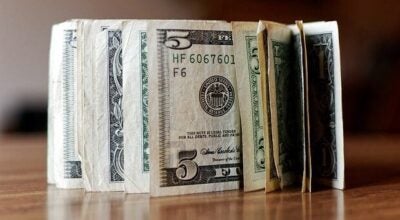Free Speech Is A Strange Animal
Published 4:30 pm Thursday, October 14, 2010
Editor, The Herald:
This is an American season. Campaign flyers, letters to the editor, lawn signs, all signal democracy in action. The modern world was fashioned by America's idea of the free election, which would have been impossible without its handmaiden, free speech.
And yet free speech is a strange animal. For example, it doesn't have to be true. We can call a health care bill “socialized medicine” when it is not, or a President a Muslim when he is not. Free speech can be inarticulate, adding little but its frustration to the debate, as in the emphatic emptiness of “Enough is enough!” Free speech can suggest contradiction, as when Republican candidate Robert Hurt complains, “In just the last 10 years, our central federal government has grown exponentially.” Eight of those ten years were a Republican administration. Perhaps Hurt thinks he can buck the Republican establishment, but one thing the last two years should have told us, as Republican politicians marched in lockstep opposition to anything Obama, is that there is no room for independent minds or actions in the Republican Party.
The “free” in free speech suggests something unfettered and without cost, yet in Buckley v. Valeo (1974), the Supreme Court took the figurative phrase “money talks” and made it literal, ruling that spending money to influence elections is constitutionally protected speech. But if spending money is speech, it follows that those with more money have more “free” speech. Further, in this year's decision of Citizens United v. Federal Election Commission (2010), the Court treated corporate speech the same as that of citizens when it comes to elections.
It is dehumanizing to consider a citizen's letter to the editor no differently than a mountain of corporately funded attack ads, but if both are clearly associated with their sponsors, it could be argued that the activity is similar. The funny thing is, when a “Disclose Act” that would require corporations to reveal such donations recently made it to the Senate, it faced a GOP filibuster; not a single Republican senator agreed to advance the Disclose Act.
Why would the Grand Old Party not want to reveal who funds “free” speech? If I want The Farmville Herald to print this letter, I must sign it; parity would argue that the “speech” of a corporation should be similarly identified.
One political faction not afraid of attention is the Tea Party, a disparate web of activists whose chosen slogan seems to be “We're mad as hell!” Such provocative, but protected, speech may sum up their exasperation, but suggests no cogent policy, nor even a particularly wise way to arrive at one. (Would you get into a cab if the driver were mad as hell?)
A mixture of impassioned but incoherent calls to “send a message to Washington” and piles of corporate money with no one's fingerprints on it is feeding the flames of our impatience only two years into this administration. Genuine voter dismay with the economy and both parties is being co-opted by nameless fiscal entities intent on funding the one party promising to rollback government regulations on their industries and make the Bush tax cuts for the rich permanent.
The final days of this American season will likely swamp citizens with scare mailings and messages, much of them fictitious, as more corporate money than ever before exercises its lopsided “free speech.” But as always in this season, it is the voters who will have the last word.
David Lewis
Farmville





